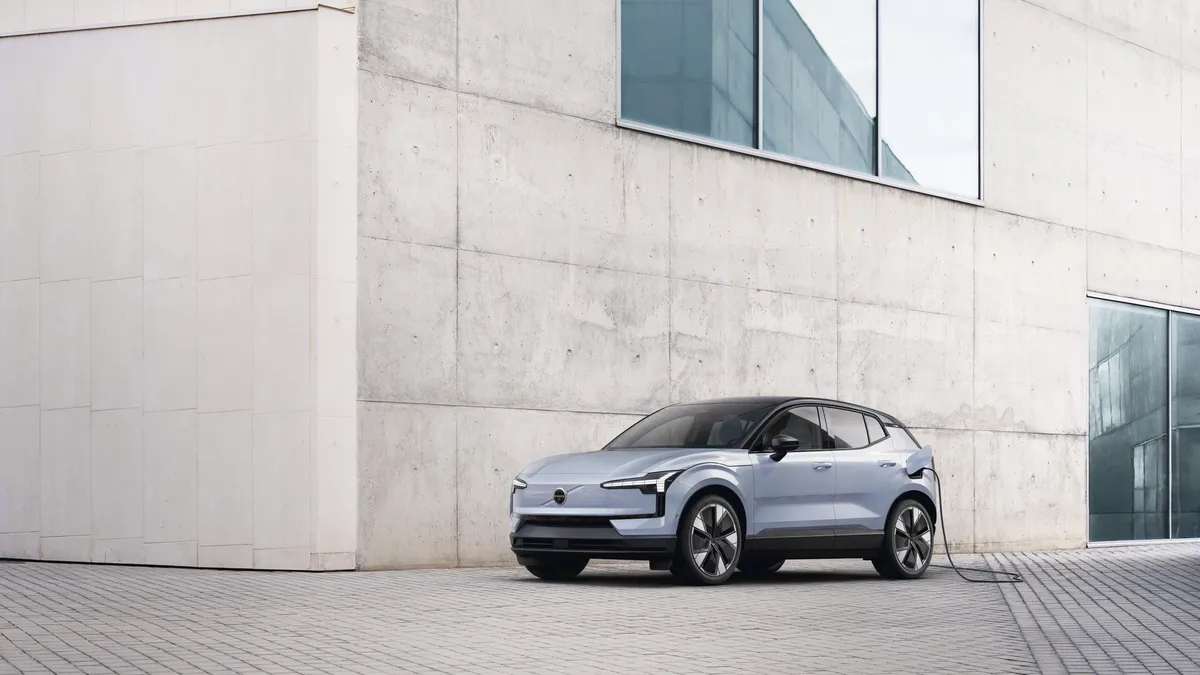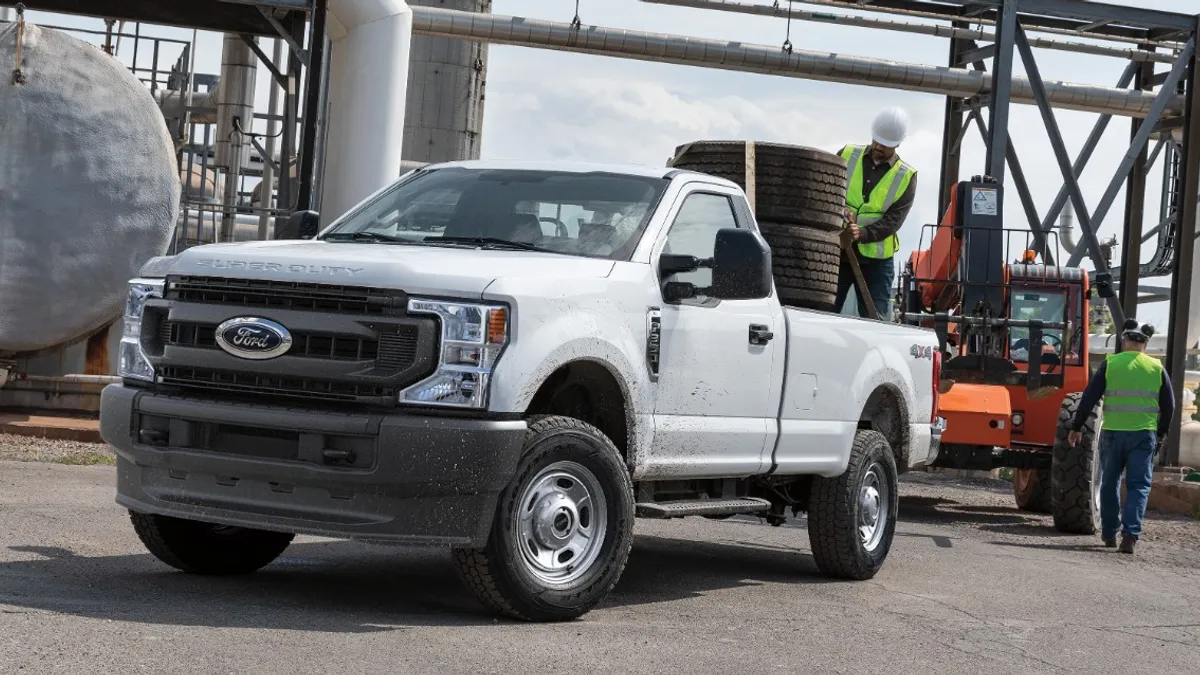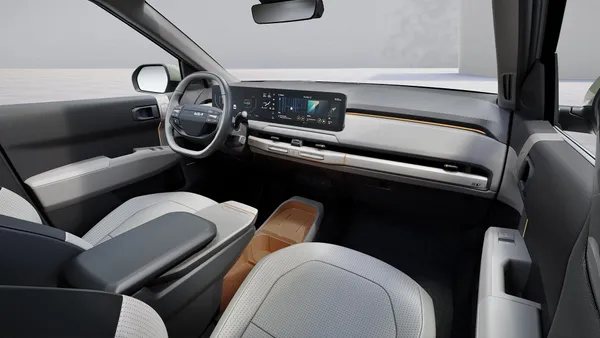Although electric vehicles are driving growth at Volvo Cars, the automaker warned investors of potential headwinds for the sector in its Q2 earnings report released Thursday.
Sales of EVs increased by 43% in the quarter, representing 26% of the company’s total global retail sales of 205,400 vehicles.
Despite those results, Volvo CEO Martin Lundstedt said booked orders for EVs were down 16% in Q1 during the company’s earnings call, dampening the automaker’s plans to go fully electric by 2030.
“Electrification, underlying electric demand, is slowing down currently, and the switch over to zero-emission transport is still driven by early adopters,” he said, noting the company sees it as a short- to mid-term issue related to the economy, incentives, energy prices and infrastructure availability.
The transition to an all-electric future will not be a linear development, Volvo said in its Q2 earnings release. The automaker highlighted the importance of hybrid models as a bridge to broader EV adoption.
“Even if there is a short-term hesitation, we all know both from a business perspective, but also from a societal perspective, that we need to deliver on these targets in order to be truly sustainable moving forward,” Lundstedt said.
Volvo Cars CEO Jim Rowan added, in an interim report, that 2024 will be a milestone year for Volvo thanks to several new electric models: EX30, EM90 and EX90. Overall, Volvo expects retail sales to grow 12% to 15% in 2024, “provided there are no major disruptions.”
In the near term, the EX30 — a small SUV that has proved popular among customers in Europe — may be affected by EU tariffs on China-made EVs. Long term, tariffs will be less of an issue as the company is planning to move production of the model to Ghent, Belgium, in early 2025.
The company will reveal more details on its technological roadmap as well as forthcoming models and updates during its Capital Markets Day in September.












